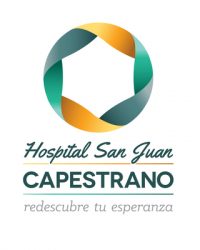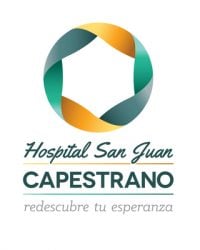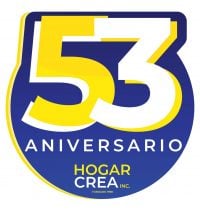San Juan Capestrano Hospital - Guaynabo
Drug Rehab Center in Guaynabo, Puerto Rico
San Juan Capestrano Hospital in Guaynabo, Puerto Rico offers a wide range of high-quality health care services including primary, specialty, rehabilitation, addiction treatment, mental health, and urgent/emergency care with a team of dedicated medical professionals who take a holistic approach to each patient's individual needs.
About San Juan Capestrano Hospital - Guaynabo in Puerto Rico
San Juan Capestrano Hospital - Guaynabo is a private health care facility located in Guaynabo, Puerto Rico. The facility offers a wide range of services including primary care and specialty services, rehabilitation and addiction treatment, mental health and psychological services, and urgent and emergency care. San Juan Capestrano Hospital is committed to providing high quality, personalized, and cost-effective care to all their patients.
San Juan Capestrano Hospital - Guaynabo offers an integrated program of treatment, support, and recovery for those struggling with addiction and substance abuse. Their team of medical professionals is dedicated to providing comprehensive and evidenced-based treatment, using a holistic approach that focuses on the individual needs of each patient. They provide addiction assessment, detoxification, individual and group therapy, relapse prevention, family counseling, and other related services. They also have an aftercare program to ensure that their patients have the support they need to continue on their path to recovery.
San Juan Capestrano Hospital - Guaynabo is fully accredited by the Joint Commission, holds licenses from the Puerto Rico Department of Health and is certified by the Centers for Medicare and Medicaid Services. They've also been recognized for their excellence in patient care by several awards, including the Joint Commission’s Gold Seal of Approval, the American Hospital Association’s Quest for Quality Prize, and the Healthgrades® Distinguished Hospital Award.
Genders
Ages
Modality
Additional
Accreditations

JCAHO
Conditions and Issues Treated
Many people who struggle with opioid addiction need to attend specific programs like methadone , Suboxone or Vivitrol clinics.
These types of programs will provide the patient with legal, prescription medications that can help them overcome their cravings for illegal opioids like heroin or fentanyl . If the patient has a chronic condition like Hepatitis C, they must undergo treatment before they can begin taking these medications.
Dual Diagnosis is a specific relationship between two or more disorders that have the same symptoms and can sometimes be treated together. This is used in the treatment planning process when dealing with drug addicts. Dual diagnosis can be viewed as a chronic medical condition that has comorbid psychiatric disorders.
Although addiction and a mental illness may have separate symptoms that are not easy to detect, they often go hand in hand. Many times, drug abuse is a direct result of the mental illness. In other words, treating the addiction will not resolve all of your issues. Unless you also treat the underlying mental illness, you will not be successful in achieving sobriety.
Levels of Care Offered
This center offers a variety of custom treatment tailored to individual recovery. Currently available are Aftercare Support, Drug Rehab, Dual-Diagnosis, Intensive Outpatient, Outpatient, Partial-Hospitalization, with additional therapies available as listed below.
An intensive outpatient program is usually the first phase of addiction treatment. It provides relief for those who are addicted, but are not ready to commit to an inpatient setting. Typically, the patient lives at home and is able to work or go to school. IOPs consist of a daily 3 to 5-hour program, and there is a required number of hours per week. Most patients go to IOP between 20 and 40 hours per week. The patient attends group counseling and individual therapy throughout the duration of treatment. They also meet daily with their therapist to discuss how it’s going and where they are in the recovery process.
The goal here is to teach patients healthy coping skills, such as stress management and identifying thoughts and behaviors that lead to relapse. The implementation of these skills will be useful as the individual transitions into the next phases of treatment.
An outpatient treatment program is set up to help with alcohol or drug addiction, or a co-occurring disorder. The patient must attend the Puerto Rico facility for their therapy and other programs but are able to return home each night. The frequency of mandatory attendance decreases after much of San Juan Capestrano Hospital - Guaynabo‘s program is complete.
Aftercare is a term that’s used to refer to any sort of continuing care offered for a drug addict who has voluntarily entered a rehabilitation program. This type of care can be provided in several settings, including outpatient therapy sessions after the addict has completed an inpatient program. There are also 12-step support groups, such as Alcoholics Anonymous, which can provide additional help for addicts trying to stay sober.
Therapies & Programs
Individual Therapy is a critical component of addiction recovery. Therapists work with patients to identify the root of their addiction and figure out how to better handle the issues that led to them using drugs. Individual Therapy is the one-on-one session where people meet with their therapist. Individual therapy provides a safe space for people to open up and discuss personal and sensitive topics which they may not feel comfortable discussing in a group setting.
Family therapy will also help families realize that the addiction is not their fault. For many years, people blamed themselves for an addict’s behavior and felt that they had done something wrong. This is not the case. Addiction is a disease, and it can strike anyone, even if their life seems fine from the outside. It can bring a lot of shame to a family when they have an addict in their midst, but if everyone is open and honest with each other, then they can help everyone stay in recovery.
Group Therapy is utilized by drug treatment centers like San Juan Capestrano Hospital - Guaynabo to provide the recovering drug addict with a platform to talk about their feelings and experiences. It also provides for an opportunity to learn from other addicts who have successfully overcome their addiction.
Group Therapy is employed in lectures, seminars, or discussion groups (the latter two are typically conducted as “therapy groups”). It is recommended that all group members be recovering addicts for this type of therapy to work (though it does not exclude others with lived experience).
Trauma therapy is a clinical process that helps individuals deal with mental stress often caused by traumatic events. It is generally done for children, teenage victims of sexual assault, and war veterans. The therapist helps the person identify, understand and work through the problem. This is done with the help of talking about it in group or one-on-one counseling sessions. Therapists use relaxation, role-playing, art, and music to help the person open up about what is bothering them.
Dialectical Behavior Therapy (DBT) is used by drug treatment centers across the United States to help drug addicts become sober. DBT combines traditional behavioral treatments with elements from DBT, including dialectics, distress tolerance, and interlocking issues. It is commonly used to treat Borderline Personality Disorder (BPD) along with substance abuse disorders. The four DBT modules are mindfulness, interpersonal effectiveness, emotion regulation, and distress tolerance.
Cognitive behavioral therapy is also a popular service for individuals living with addiction. This type of supportive treatment uses both one-on-one counseling and group sessions to teach addicts how to identify thoughts, behaviors and emotions that might increase their risk of relapse.
These professionals can help addicts develop coping skills for managing stress, improving self-esteem and overcoming triggers. They might also use behavioral therapy to help addicts learn how to avoid cravings and warning signs that could lead them back into addiction.
Therapy can be used as a step-down from inpatient treatment or as the primary method of overcoming an addiction. No matter which option is best for the addict, they will teach important emotional coping techniques, which can make it easier for addicts to get through the tough days.
Training in improved life skills helps those recovering from addiction feel more capable of self-care. San Juan Capestrano Hospital - Guaynabo are daily skills that give the person the tools they need to survive.
The therapy covers practical activities like cooking, job hunting, social interaction, and money management, helping to fill in the knowledge gaps caused by addiction.
These life skills help the person self-manage their recovery and stay on track. It also reduces relapse risk as they gain confidence in their day-to-day abilities.
Patient Experience
Experiential Therapy at San Juan Capestrano Hospital - Guaynabo
Experiential therapy is another form of treatment that helps addicts overcome their addiction. This type of service typically involves hands-on activities with the focus on physical experiences instead of emotions or beliefs.
Some examples include art therapy, equine therapy and music therapy. Each of these forms of experiential therapy can provide unique ways for addicts to channel their feelings and work through their demons. This type of therapy also allows addicts to develop meaningful emotional connections with others, which can prevent them from resorting to relapse as a coping mechanism.
Payment Options Accepted
For specific insurance or payment methods please contact us.
Is your insurance accepted?
Ask an expert, call (888) 674-0062
Additional Details
Specifics, location, and helpful extra information.
Guaynabo, Puerto Rico 966 Phone Number(787) 708-6323 Meta DetailsUpdated November 25, 2023
Staff Verified
San Juan Capestrano Hospital - Guaynabo Patient Reviews
There are no reviews yet. Be the first one to write one.
Guaynabo, Puerto Rico Addiction Information
Unfortunately, the drug addiction problem in Guaynabo, Puerto Rico, is quite severe. In fact, according to recent statistics, there are approximately 8,000 people in the city who currently struggle with a drug addiction of some sort. This high addiction rate can be attributed to many factors, including the easy availability of drugs and the lack of resources available to those who want to get sober.
Treatment in Nearby Cities
- Luquillo, PR (25.4 mi.)
- Orocovis, PR (21.2 mi.)
- Canovanas, PR (13.7 mi.)
- Caguas, PR (10.5 mi.)
- Toa Baja, PR (9.2 mi.)
Centers near San Juan Capestrano Hospital - Guaynabo
The facility name, logo and brand are the property and registered trademarks of San Juan Capestrano Hospital - Guaynabo, and are being used for identification and informational purposes only. Use of these names, logos and brands shall not imply endorsement. RehabNow.org is not affiliated with or sponsored by San Juan Capestrano Hospital - Guaynabo.




